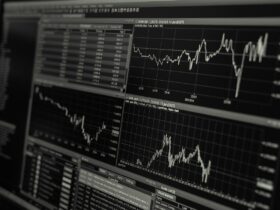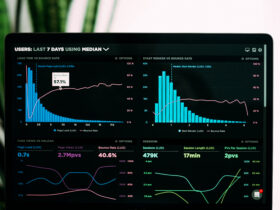In finance, a futures transaction is a standardized legal arrangement to purchase or sell something with a preset price in the future, between two parties never known to each other, usually involving commodities or certain financial instruments. The tradable asset traded is typically a security or an item. Futures markets are increasing daily in volume, due to the large number of buyers who rely on the futures market to deliver a contract when they need it, such as when making investments.
Trading foreign exchange markets can often feel like picking a winner at the Masters: you try to execute on a general opinion only to be met with a whole mess of choices.
The word “bitcoins” has many people talking. Just what is it? Can you just start buying some and forget about it? After all, if something is worth money, why not use it for trading currencies? In a world where money flows around the world like a river, it’s more important than ever to be able to trade between different currencies.
How to invest properly is one of the biggest questions that consumers who are planning to make an investment ask. To invest properly is to put money into the market with the plan of reaping some benefit/cash in return in the near future.
If you've never done futures day trading before, it can be intimidating. The concept of futures trading is confusing for many new traders. It's important to understand the basics before you jump in. Common question futures day traders ask is how much return can I expect? This depends on many factors. Some are easier to define than others.
To invest effectively means putting money into the expectation of a return in future. Simply put, to invest in shares means buying an entity or an asset with the intention of generating profit from the investment over a specified period of time or the return of your initial investment.
To invest is to put money into the hope of some return/benefit in the near future. Simply put, to invest simply means buying an asset or an object with the intention of making a profit from the investment or simply the appreciation of that asset over a certain period of time. In the financial markets, an investment refers to any money or assets that are used as collateral in order to obtain funds for a planned purpose. The key purpose of all investments is to make money. There are different types of investments including stocks, bonds, mutual funds, real estate and foreign exchange.
First, you need to understand what is Futures trading. In essence, Futures trading is the act of speculating on the price movements of future events, which may not happen. In some sense, this is similar to the stock market, with one difference: The price movement of a stock doesn't occur until a company decides to sell, buy, or do nothing. Because of this fact, the trading of Futures revolves around companies and their own futures plans.
If you are thinking about entering the futures day trading arena, I'm not just talking big money here. I'm talking about real wealth. As long as you know how to play the game, there's no reason you can't become rich. And you don't need much money to get started because there are some strategies that can get you started in the markets with very little capital.
In simple terms, investing refers to purchasing assets with the goal of making a profit, earning interest on your investments, or increasing your net worth. Investing can also be thought of as making your own money. Making profits through various types of investments can be achieved either through the direct process of making gains on your investments or indirectly through the earning of interest on your investments. Either way, it is important that an investor knows how to manage his or her investments.











